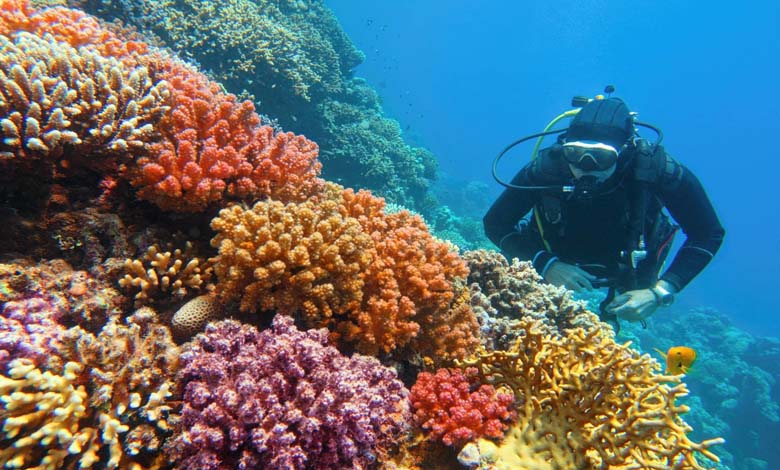Human Drug Residues Threaten the World of Coral Reefs

Researchers have discovered traces of ten common drugs in coral samples from the Gulf of Eilat in the Red Sea, raising concerns about the impact of human drug use on marine ecosystems.
-
600-year-old coral reefs reveal climate secrets
-
The “Ocean Acidification” Crisis Threatens Earth’s Habitability
Among the drugs found, sulfamethoxazole, an antibiotic, was detected in 93% of the sampled coral reefs.
Noa Shinkar, the lead author of this first-of-its-kind study, stated: “We conducted a large-scale investigation to detect drugs in coral reefs. We were surprised to find widespread drug presence even in deep-water coral reefs, which usually escape the pollution affecting shallow-water reefs.”
-
Predatory worms devour “everything they encounter” in the Mediterranean
-
“Mysterious” Seats on an American Beach Spark Speculation about their Origin
The research team was astonished by the findings from samples of 96% of the rocky coral reefs, some located more than 30 meters below the ocean’s surface. All the samples were contaminated with drug residues, regardless of their depth.
The drugs discovered included antibiotics, blood pressure medications, antidepressants, cholesterol-lowering drugs, laxatives, and others. The presence of these compounds, often prescribed to humans, indicates that coral reefs are exposed to pollutants through wastewater discharge into the sea.
-
The Hottest Eight Years on Record: The Impact of Climate Change
-
Climate: Catastrophic consequences may occur… According to a study
What does the presence of pharmaceuticals in coral reefs mean?
“There is no reason to believe that coral reefs should be immune to these effects.” Previous research by the team has shown that some drugs can disrupt the biology of certain marine species, with effects ranging from altering reproductive behaviors in fish to memory impairment in squid.
The researchers also point out that similar effects could harm coral spawning synchronization, with potentially severe consequences for coral reefs, which are crucial hubs of marine biodiversity.
-
Due to heavy rains, a state of emergency declared in Russia
-
Expert Comments on “Gas Emissions” from the Earth in Northern Sudan
Co-author Gal Navon stated: “Today, this sensitive ecosystem is under pressure from climate change, pollution, and overfishing. The presence of pharmaceuticals in coral tissues adds another level of concern, indicating that human activities are polluting even the most remote marine environments.”
The study called for improvements in wastewater treatment processes to better filter pharmaceutical residues, as well as greater care in disposing of expired drugs in environmentally safe ways.












